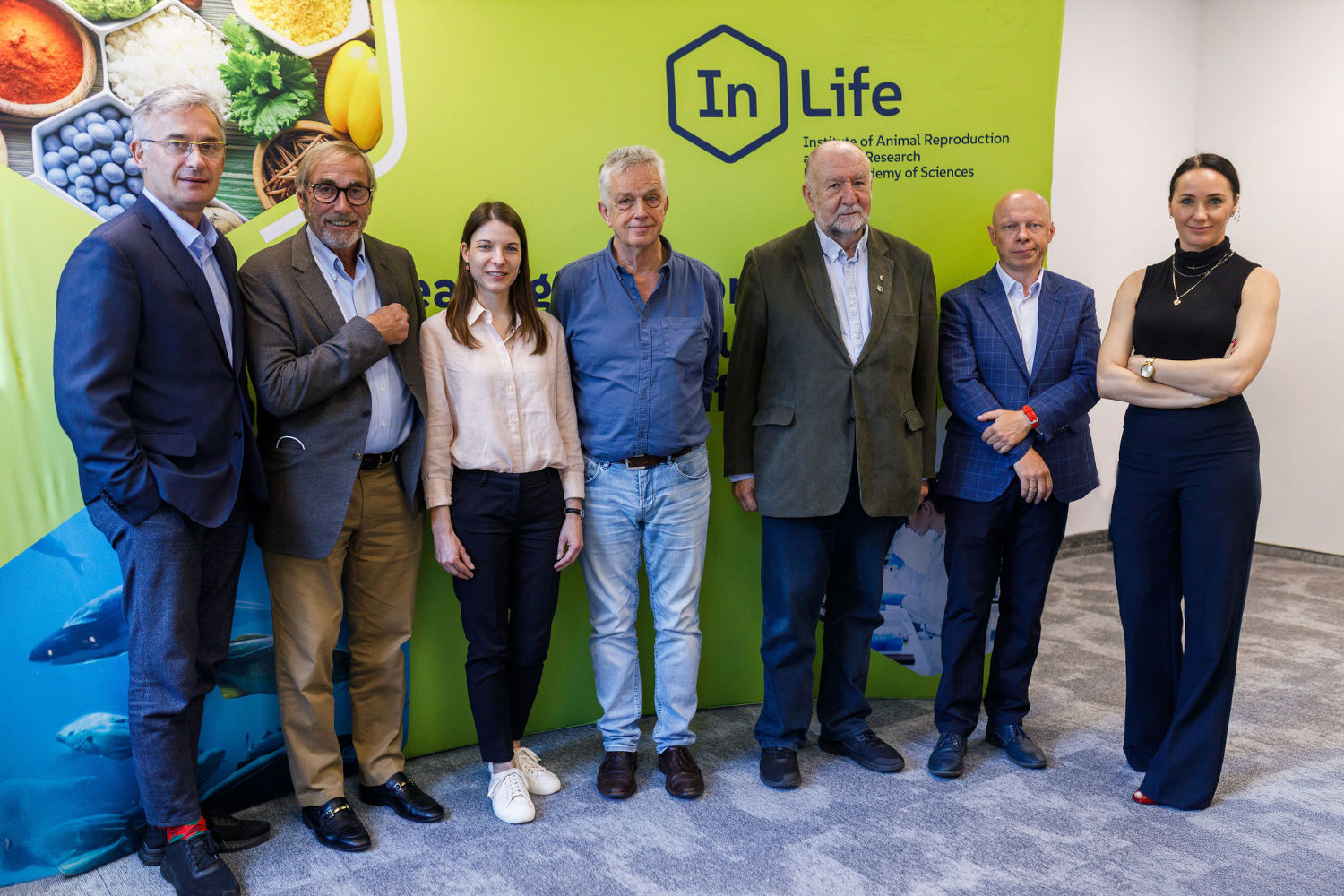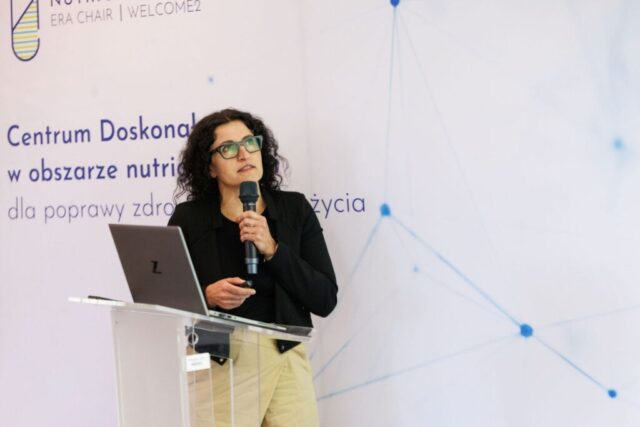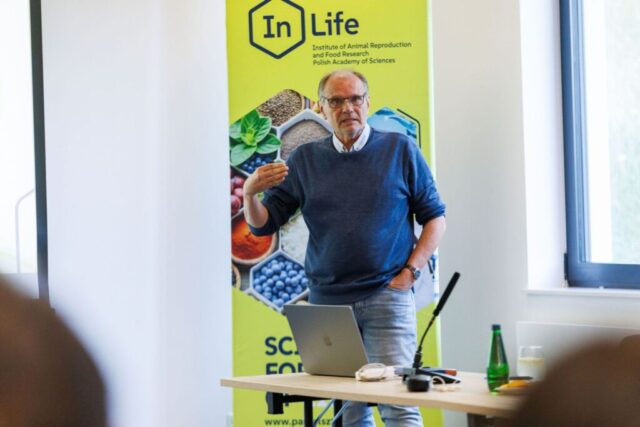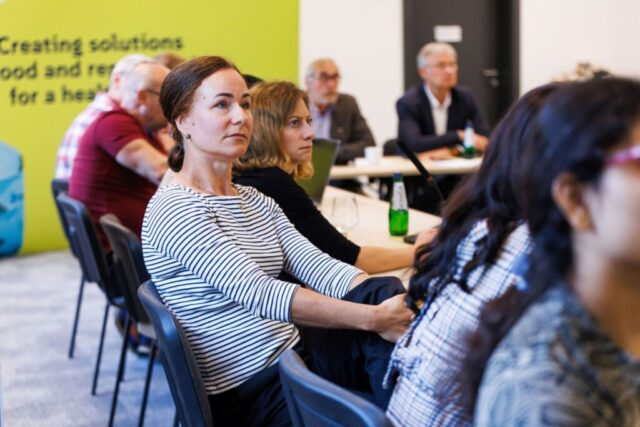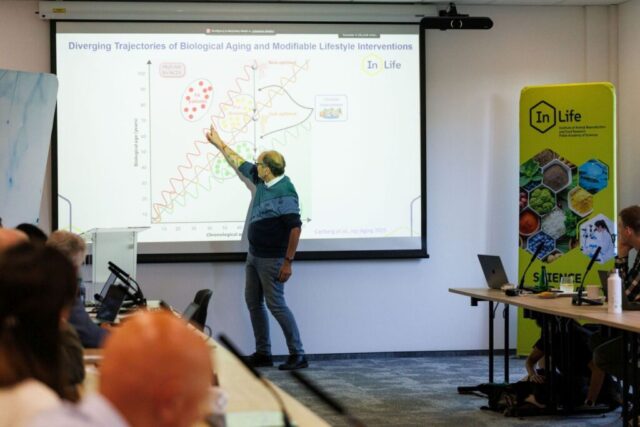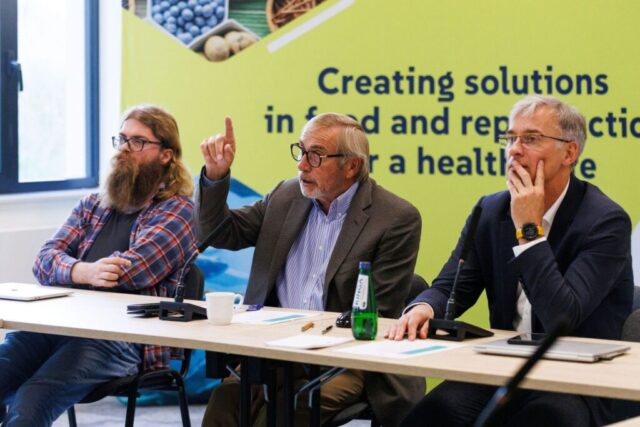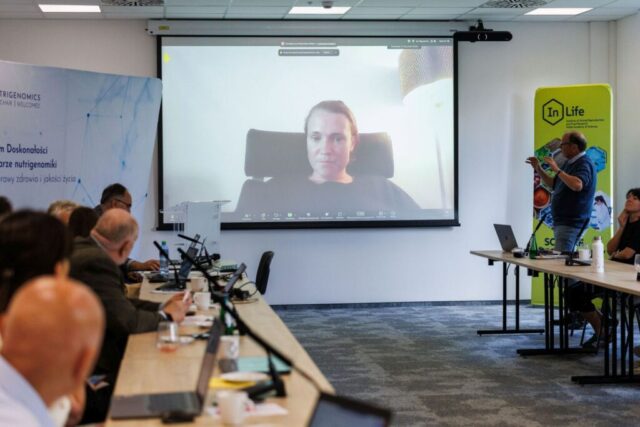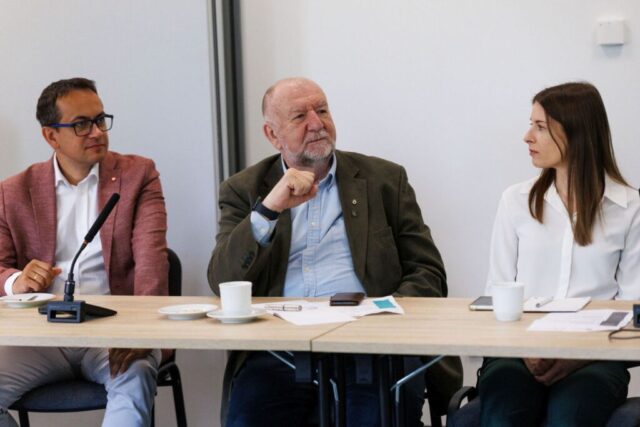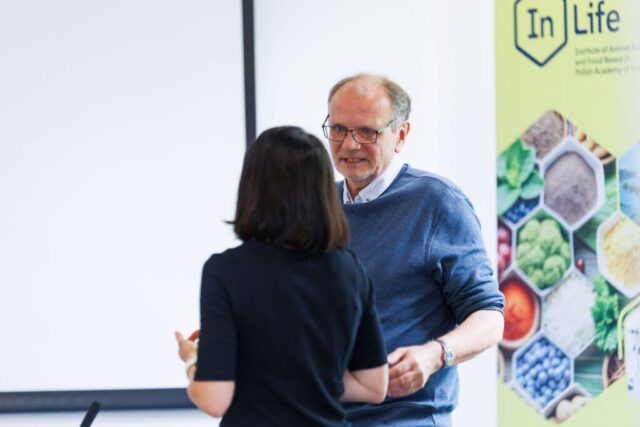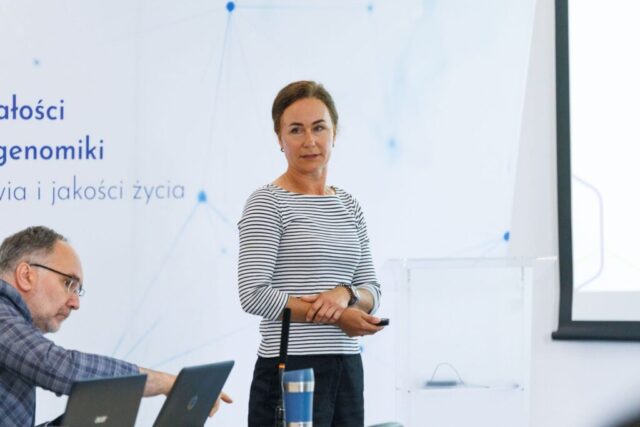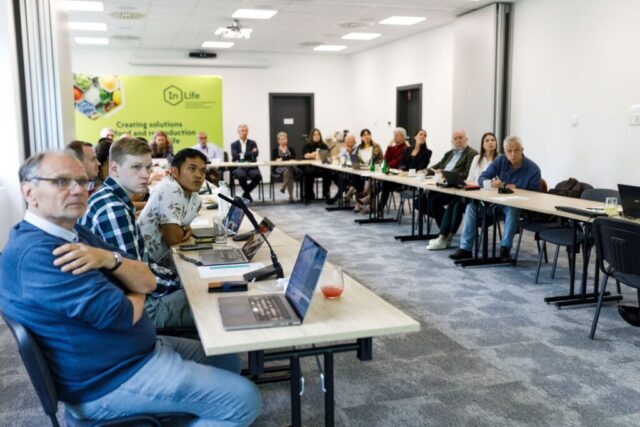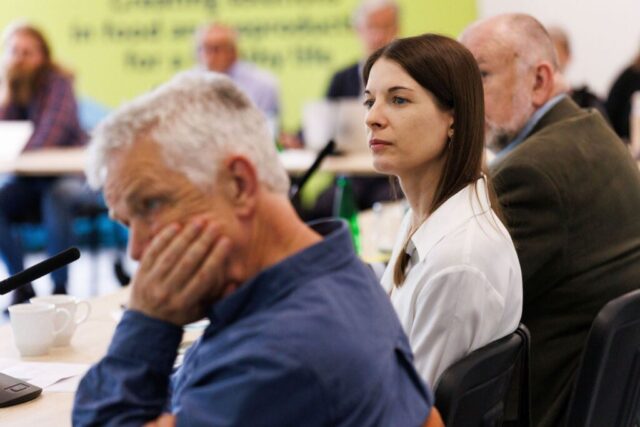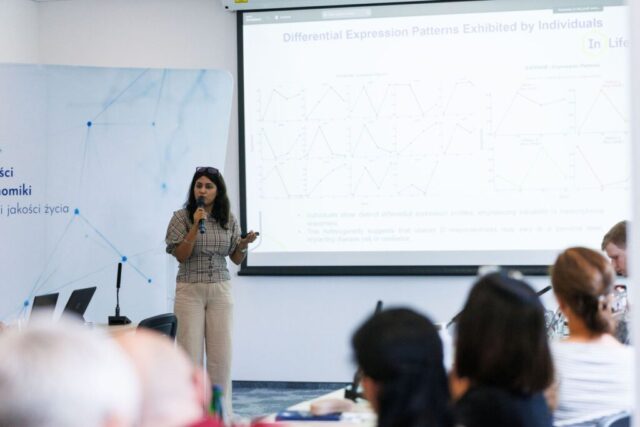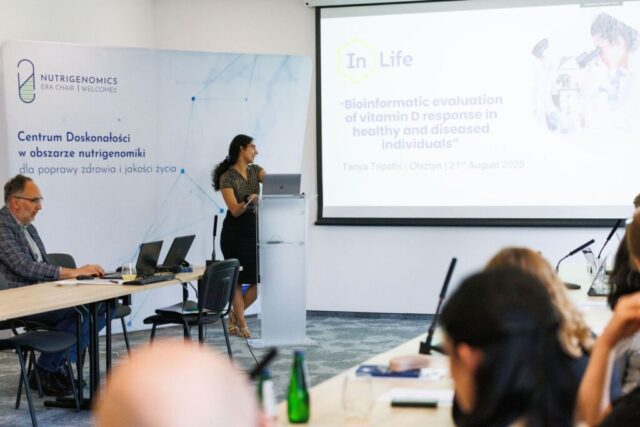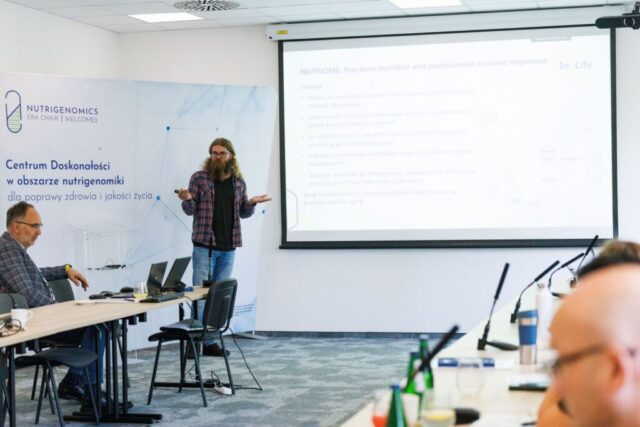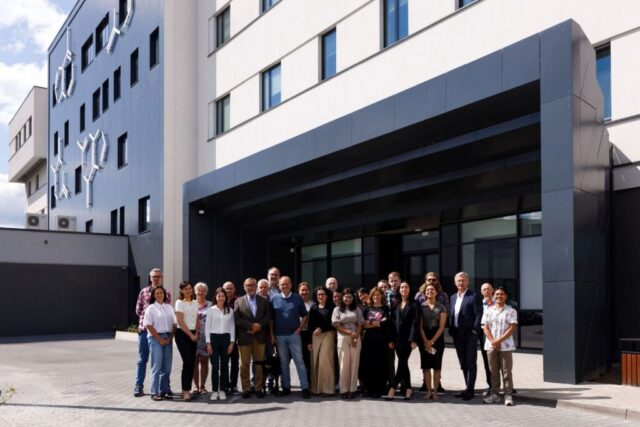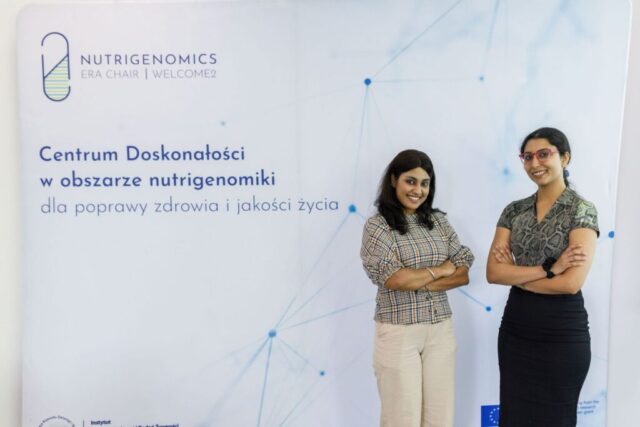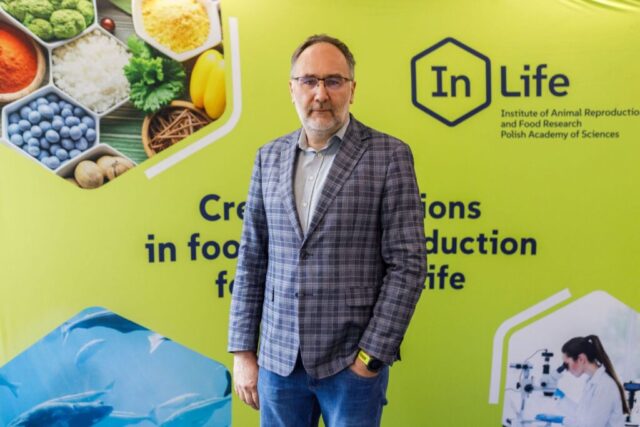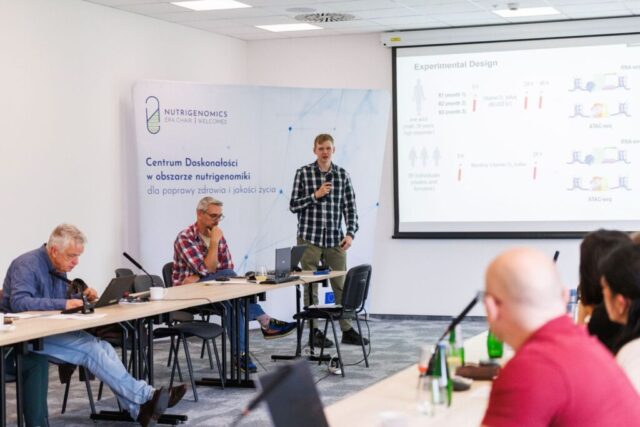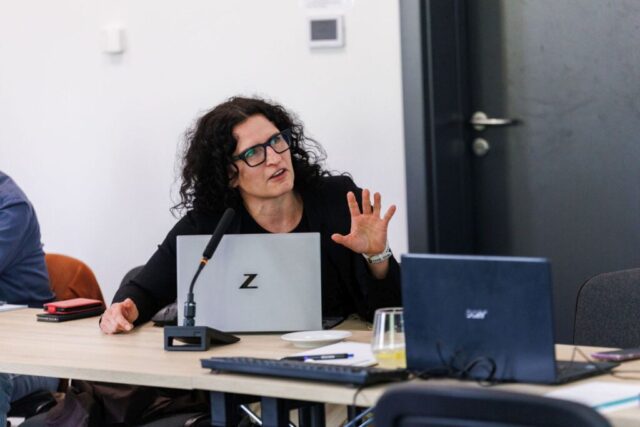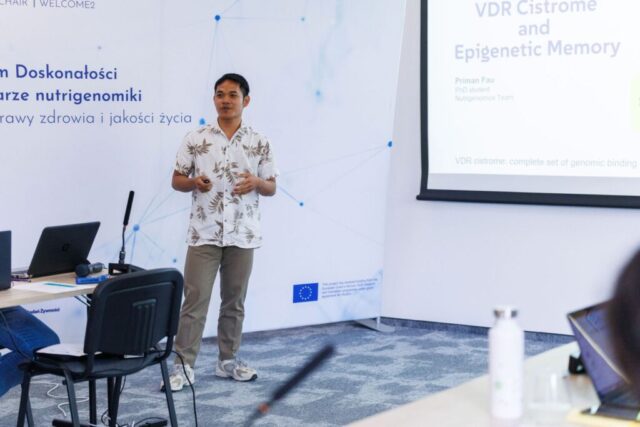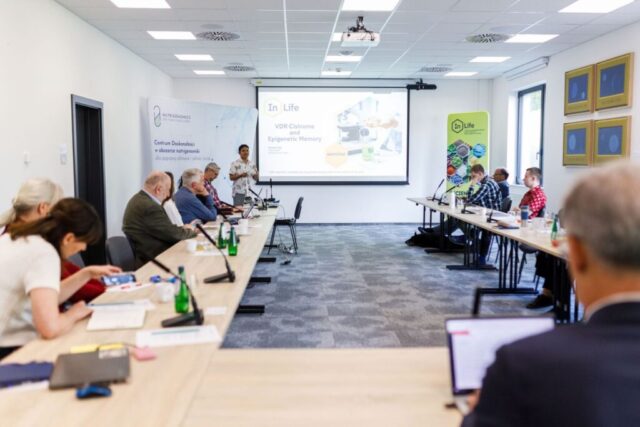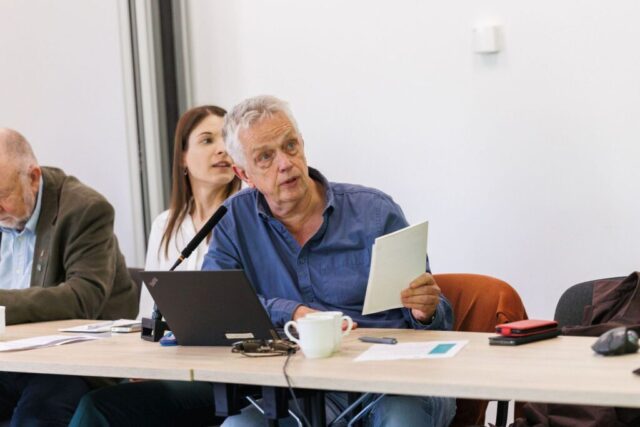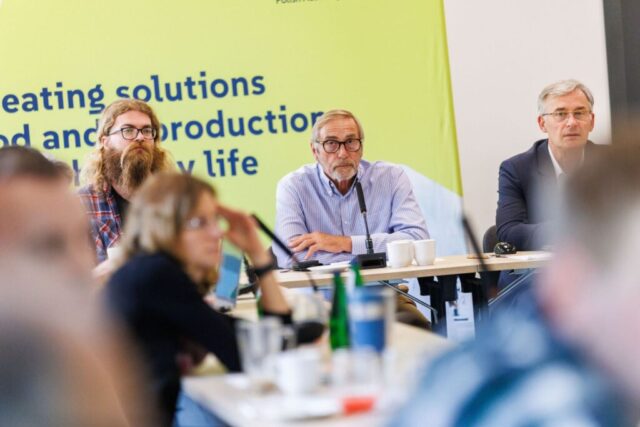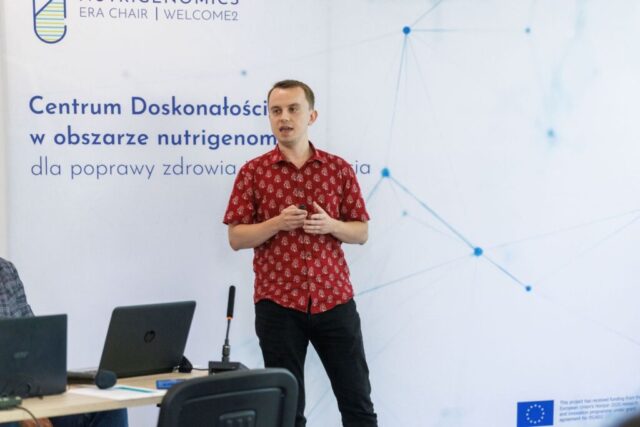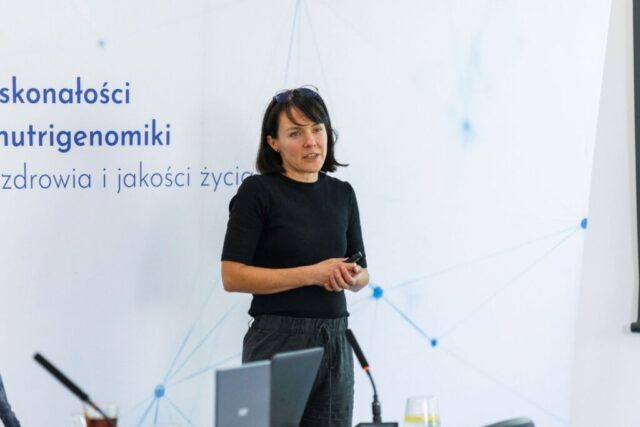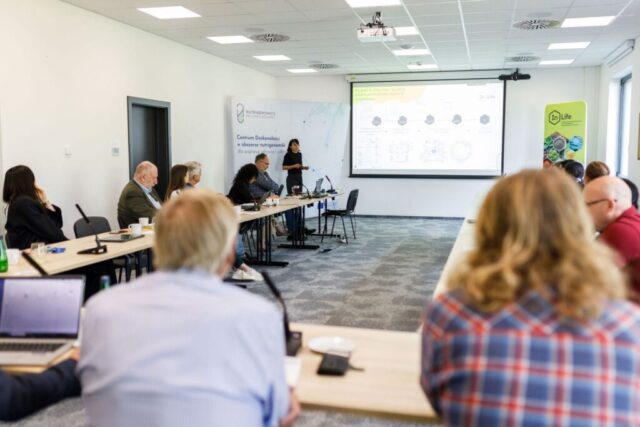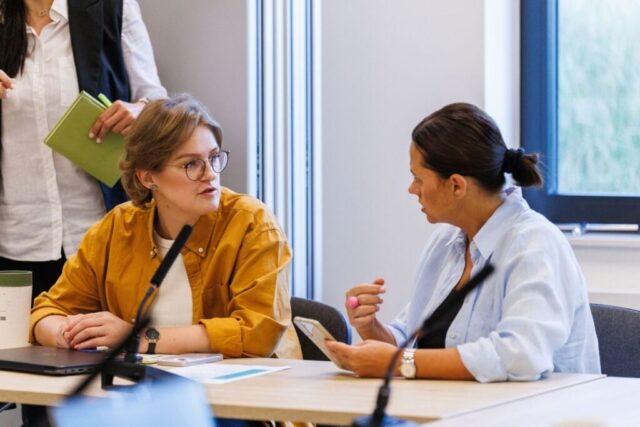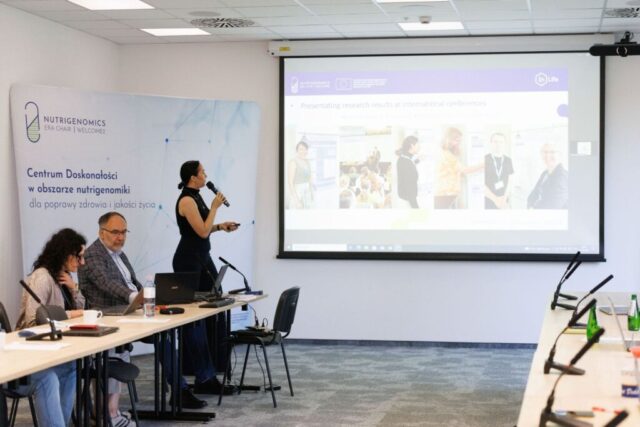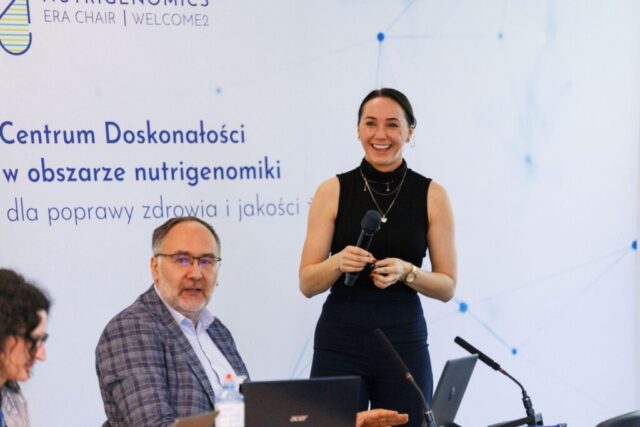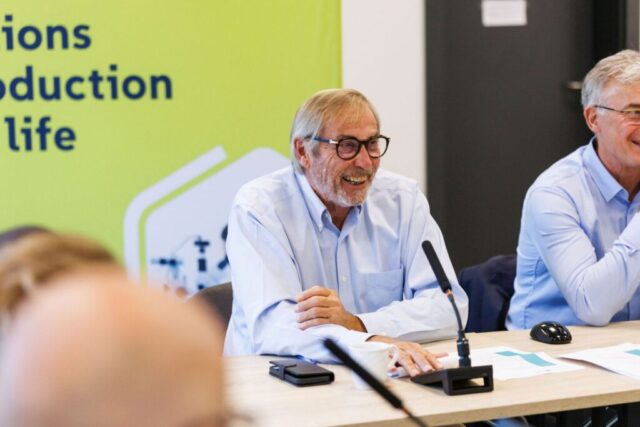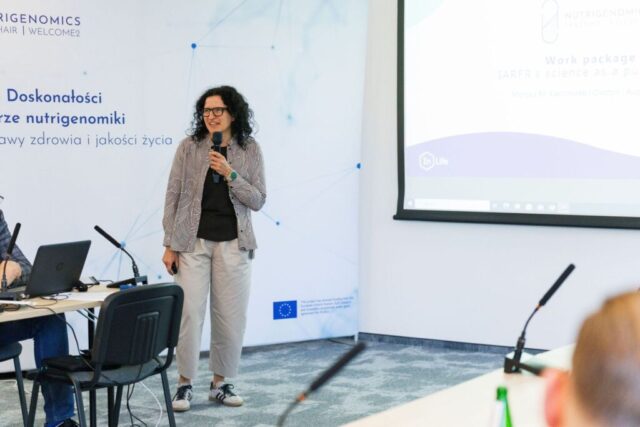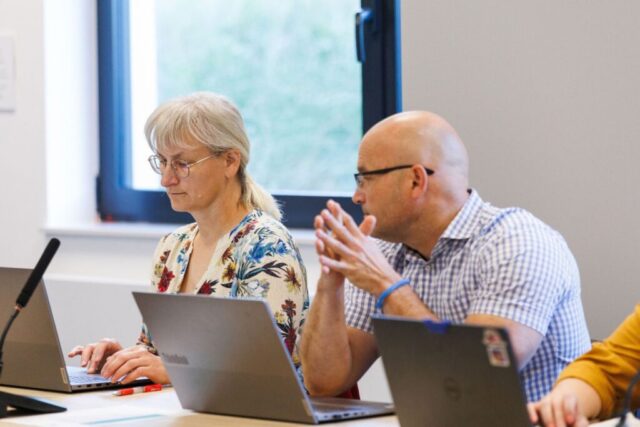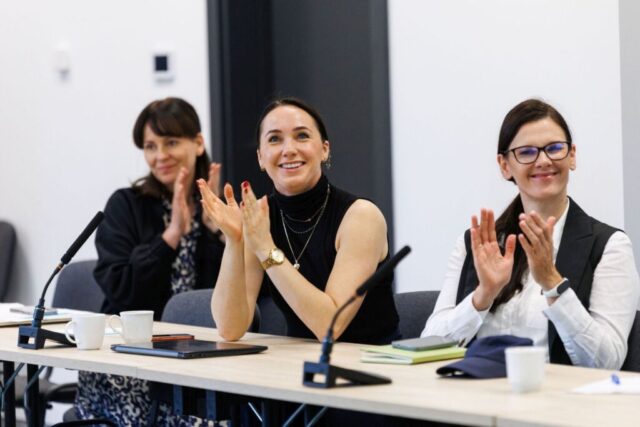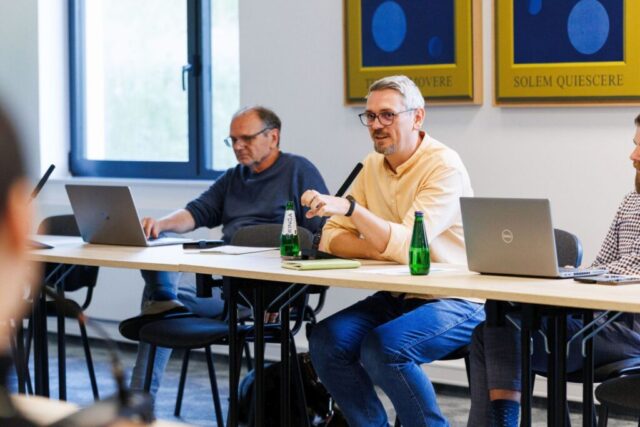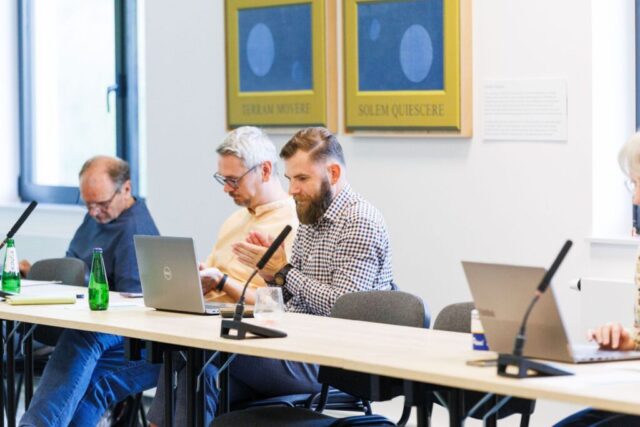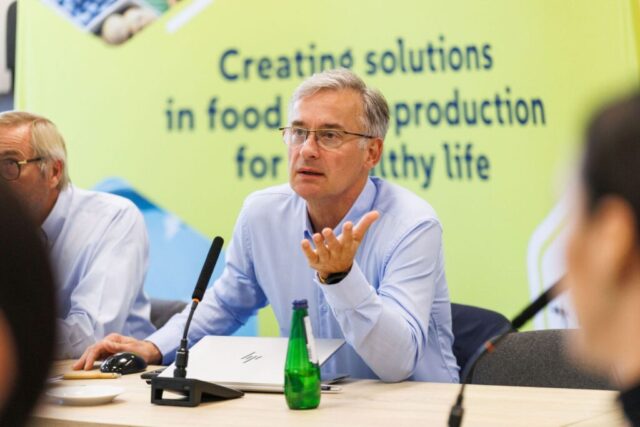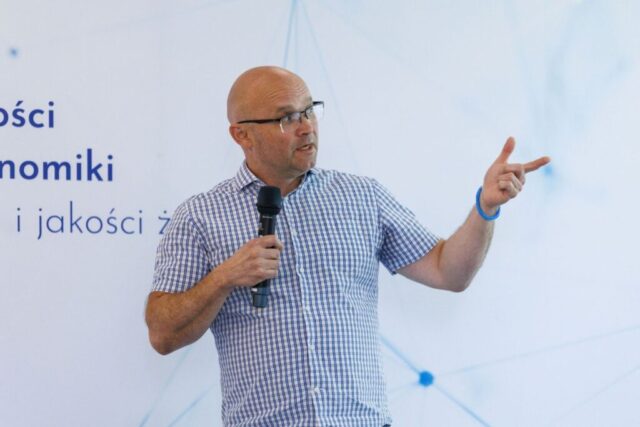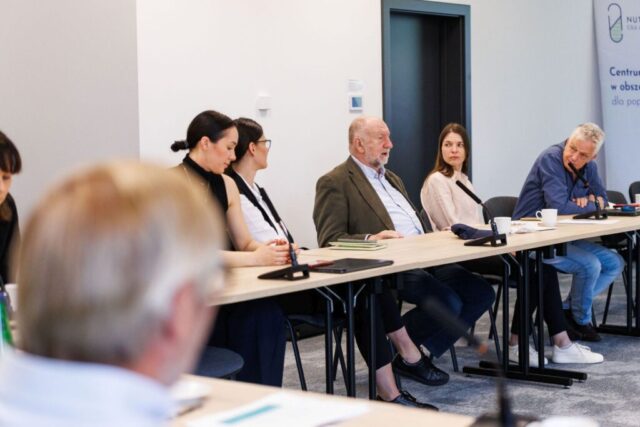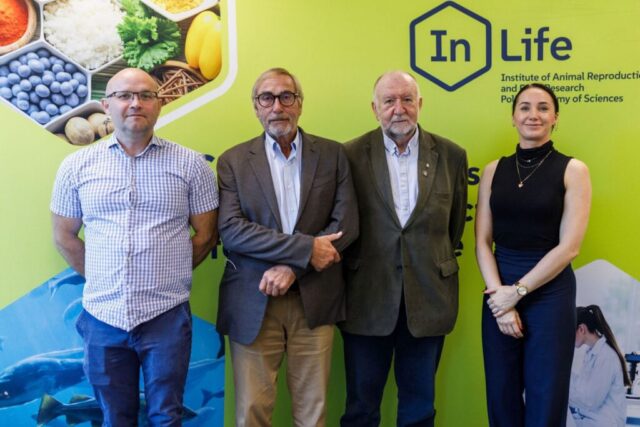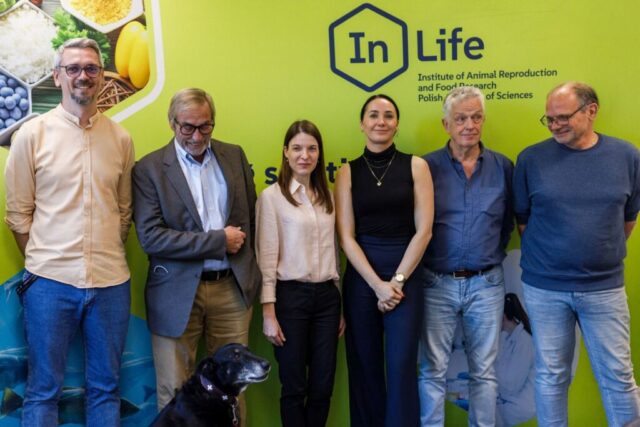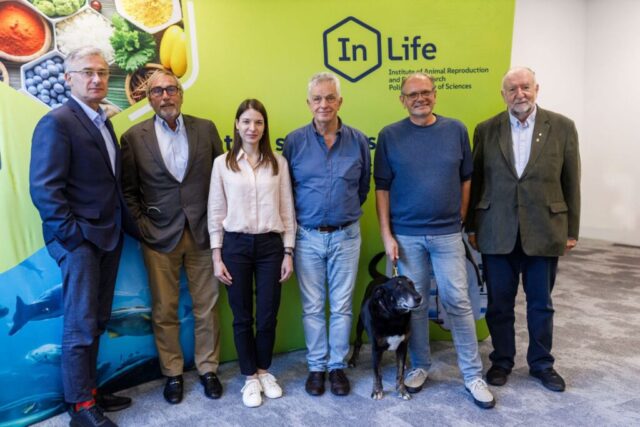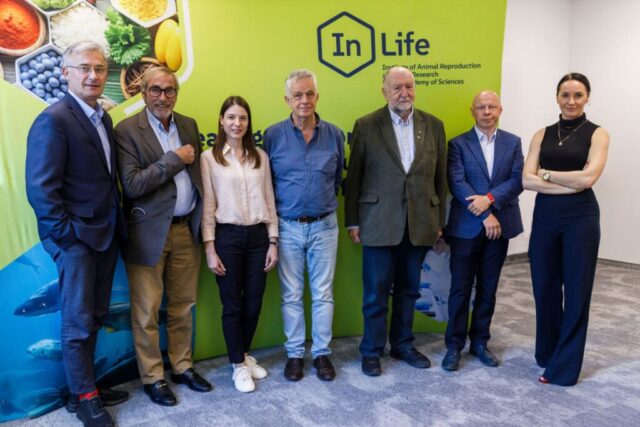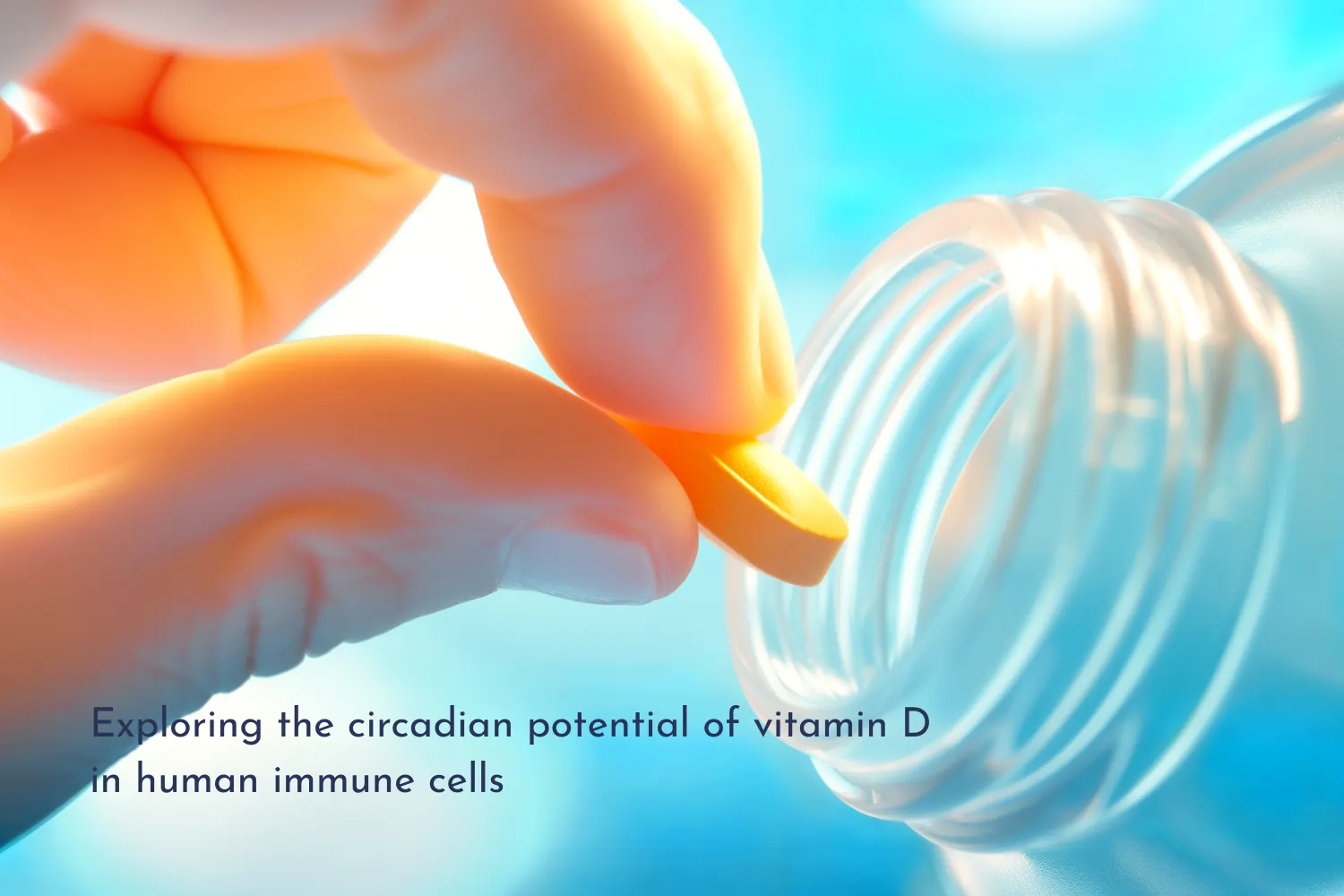What does the future hold for the WELCOME2 ERA Chair project? What research is currently being conducted within its framework? And finally – what has been achieved so far? These topics were discussed by the leaders of the WELCOME2 project and members of the Advisory Board during the fourth meeting, which took place in Olsztyn on August 21–22.
Discussions, presentations, and experience exchanges focused on key scientific challenges and the further development of the project, which aims to strengthen the Institute’s position on the European research map.
The two-day session gathered scientists, business representatives, local authorities, and the management of the Institute of Animal Reproduction and Food Research of the Polish Academy of Sciences in Olsztyn.
The meeting was chaired by Prof. Mariusz Piskuła, project coordinator, and Prof. Peter van Bladeren, Chair of the Advisory Board. At the outset, the good development dynamics of the project and positive conclusions from previous sessions were emphasized.
New management, new development directions
The first presentation was given by Prof. Monika Kaczmarek, the new director of the Institute, who assumed her role at the beginning of 2025. She presented the organizational structure of the unit, personnel changes, and main development directions. As she emphasized current efforts are aimed at greater inclusiveness and team integration. Special emphasis was placed on the development of young scientists and creating conditions for their long-term engagement in research.
The scientific core of the project
Prof. Carsten Carlberg, leader of the WELCOME2 project, presented progress in research work and the development of the Nutrigenomics team. Since 2022, an interdisciplinary team of scientists has been assembled, enabling intensive research on the influence of vitamin D on gene expression and immune system functioning.
Over three years, the project attracted significant external funding – in addition to EU financing (€1.1 million), additional national and international grants were obtained (totaling over 6 million PLN). The number of published scientific papers – 34, including 13 original articles – already significantly exceeds the initial assumptions.
The next stage of the first day of the Advisory Board was presentations by scientists from the Nutrigenomics Team. They presented current research results on vitamin D. Topics discussed included epigenetic mechanisms and differences in responses between healthy individuals and patients with multiple sclerosis (MS), changes in chromatin accessibility after supplementation, and the effect of vitamin D on circadian rhythms and immune responses. Presentations were given by:
- Emilia Gospodarska – VitDPAS study
- Ranjini Ghosh Dastidar – Vitamin D response index and modelling
- Tanya Tripathi – VitDPAS and MS study
- Maciej Rybiński – Vitamin D epigenomics
- Parcival Maissan – Vitamin D and circadian rhythms
- Maciej Rybiński – Vitamin D epigenomics
- Priman Fau – VDR cistrome and epigenetic memory
- Mariusz Jankowski – Vitamin D and LPS
- Julia Jarosławska – Vitamin D and immune challenges
Conferences 2026
An important part of the day was also the discussion of planned conferences in 2026. Prof. Carlberg presented details regarding the organization of NuGO Week 2026 in Olsztyn. The event will gather international experts in nutrigenomics. Immediately following this conference, an international meeting of the WELCOME2 project is also scheduled for early September 2026.
Second day: how science becomes visible, accessible, and well-managed
The second day of the Advisory Board meeting was devoted to discussions on communication, management, and the long-term vision for project development. A key topic was the visibility of WELCOME2 – both in the scientific world and among the local community. Activities promoting the project at various levels were presented: from social media presence, participation in international industry events, to organizing seminars and open educational meetings.
The focus was also on science as a public value. The team working on this topic shared progress in implementing Good Laboratory Practice systems, research data management, and efforts to raise awareness about intellectual property protection.
Topics related to the Institute’s staff were not missing either – their development, support, and competencies. A new approach to recruitment, support activities for young researchers, and a broad training program on project management, grant writing, and soft skills development were discussed.
During the meeting, the current progress of the Raising Managers Academy – a nationwide development program for current and future science managers – was also presented. The third edition of the program, now underway, focuses on deepening knowledge in team management, communication, and developing key managerial competencies.
The future of the project and next steps
The highlight of the day was the discussion about what will happen to the project after its completion in September 2026. It was emphasized that although WELCOME2 has already brought measurable financial benefits to the Institute (PLN 6.3 million), further strategic decisions and securing funding from national sources will be crucial.
Intensive efforts are underway to obtain funds, and all parties involved in the discussion expressed hope for the continuation and development of the project. The common goal is to use the achievements so far to strengthen the Institute’s position on the European science map.
The next Advisory Board meeting is scheduled for November 2025 – this time in an online format.
